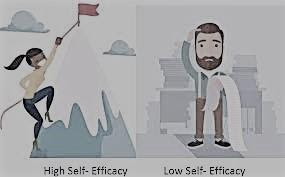 As a college student, it’s nearly impossible not to feel symptoms of stress. In addition to the stress of living during a pandemic, other causes of stress common for college students relate to academics (adaptation to a new context, preparation for and completing more challenging exams, pressure to perform) and non-academic demands (where to live, the need to create new social relationships, roommate and other social conflicts, money worries, concerns about post-graduation plans). The mental health concerns of college students are well documented.
As a college student, it’s nearly impossible not to feel symptoms of stress. In addition to the stress of living during a pandemic, other causes of stress common for college students relate to academics (adaptation to a new context, preparation for and completing more challenging exams, pressure to perform) and non-academic demands (where to live, the need to create new social relationships, roommate and other social conflicts, money worries, concerns about post-graduation plans). The mental health concerns of college students are well documented.
Being unable to manage stress can be harmful to your academic performance (reduced ability to pay attention or to memorize, less dedication to study, etc.) as well as to your physical and psychological health (substance abuse, insomnia, anxiety, physical and emotional exhaustion, etc.). How you cope can make a difference in your ability to manage stress.
While there are many coping strategies, they are generally categorized into two broad types: 1) approach (also called active) strategies and 2) avoidance (also called evasive or disengagement) strategies. Approach strategies are aimed at making an active response to the stressor. Approach strategies include planning, taking a specific action, seeking support, positive reappraisal of the situation, or acceptance. Avoidance strategies are used to evade stressful situations, such as distraction, denial, and wishful thinking. Based on these classifications, there is a broad consensus that the approach strategies are related to good academic, physical, and psychological adjustment whereas avoidance strategies usually mean maladaptive consequences for students.
Here are five approach strategies to cope with the stress of being a college student during the pandemic:
- Keep a normal routine. Maintaining consistency can be accomplished through simple things such as waking up around the same time, writing down daily goals to accomplish, exercising, and maintaining hygiene.
- Watch nutrition and diet. What and when we eat directly impacts how we feel. Maintain nutrition by eating three balanced meals per day and snacking in moderation.
- Take a break. To avoid having negative thoughts, take deep breaths and repeat positive affirmations to yourself to practice mindfulness. Here is one mindfulness activity. If you feel symptoms of anxiety rising, try to get enough sleep, limit alcohol and caffeine, count to 10 slowly, and practice relaxation techniques.
- Stay connected with others. Being around people you care about and who make you feel comfortable can help decrease stress. Walking outside with others and using video calls for face-to-face conversations is another way to maintain your well-being and reduce stressors.
- Consider speaking with a mental health counselor at your university or with a faith-based professional at your synagogue, church, or mosque. If you feel like you’re experiencing unhealthy levels of stress and anxiety, seeking help is a way to better understand the physical symptoms that you may be experiencing. There is nothing to be ashamed of and it will be beneficial to you in the long run.











